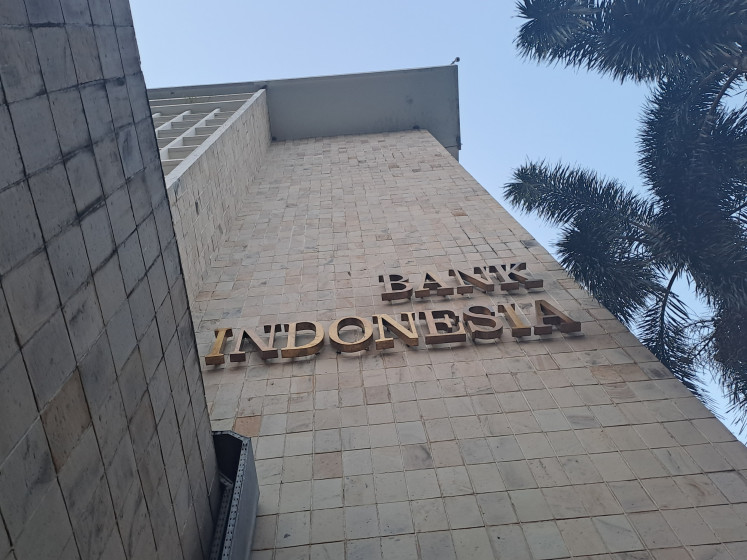Popular Reads
Top Results
Can't find what you're looking for?
View all search resultsPopular Reads
Top Results
Can't find what you're looking for?
View all search resultsEDITORIAL: Worrying economic signs
Consumer spending remained the largest driver of the country’s growth in the second quarter of the year.
Change text size
Gift Premium Articles
to Anyone
 Consumer spending remained the largest driver of the country’s growth in the second quarter of the year. (Shutterstock/File)
Consumer spending remained the largest driver of the country’s growth in the second quarter of the year. (Shutterstock/File)
A
s expected, consumer spending remained the largest driver of the country’s growth in the second quarter of the year, although it seemed to have begun to lose its weight in the economy. Consumer spending only grew by 4.95 percent in the second quarter, almost unchanged from the 4.93 percent in the previous quarter but lower than the 5.07 percent recorded in the second quarter last year.
Overall economic growth stagnated at 5.01 percent, more or less as a result of the decline in consumer spending. Its contribution to the economic growth fell to 55.61 percent in April-June from 56.96 percent in JanuaryMarch and 55.93 percent in the second quarter of last year.
The pallid growth in consumer spending might appear insignificant. However, it has stirred public debate as it occurred amid growing concerns over the country’s sluggish retail sales.
Some economists regard the slight decline in the contribution of consumer spending to growth as simply a matter of routine. There is nothing to worry about, they assure us and forecast spending will grow at a faster pace in the second half. Based on this assumption, they believe that the government’s economic growth target of 5.2 percent this year is within reach, despite the not-so favorable economic outlook.
Skeptics, however, warn the government against underestimating the slight drop, saying it could indicate a weakening of the dominant role of consumer spending in the economy. In the past, private consumers have helped to sustain economic growth, particularly when exports and public spending and investment have declined.
Such concern is understandable, because if the downward trend in consumer spending continues in the next few quarters, its impact will be more serious, as the growth of other major economic drivers, such as government spending and exports, has remained weak.
In addition to this, consumer confidence also remains low. The latest survey conducted by Danareksa Research Institute found that overall consumers are less upbeat about the prospects of the economy. However, despite being less confident, buying intentions for durable goods strengthened in July.
We agree with Bank Indonesia Governor Agus Martowardojo, who said that despite the gloomy outlook, the government’s growth target of 5.2 percent will be achievable this year. Low inflation will help maintain people’s purchasing power, which will in turn boost household spending. The increase in spending by political parties as they gear up for the 2018 simultaneous regional elections is also expected to help spur economic growth in the third quarter.
However, the government’s efforts to attract more foreign investment and to make domestically produced products more competitive should continue. There are few options other than to increase investment and exports in order to cope with the declining role of consumer spending in economic growth.









